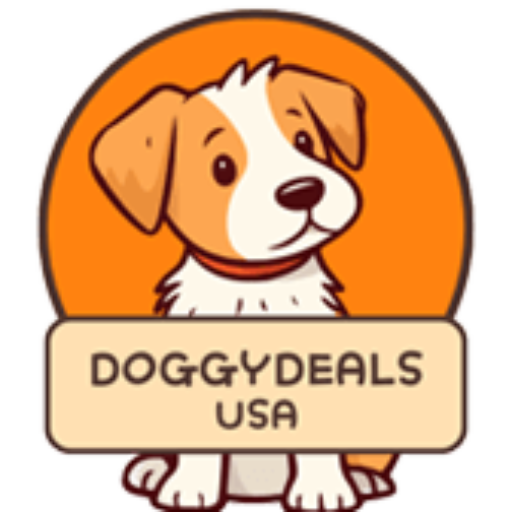Best Dog Food for Allergies— The basics: Dogs can suffer from food allergies the same way humans do. When a dog is allergic to something then selecting the right diet is very important to improve their overall well being. We’ll go over what causes food allergies, what to watch for, and how to choose the best dog food for managing them here.
How food allergies work in dogs
What Causes Food Allergies?
Food allergies happen when a dog’s immune system has an exaggerated immune response to certain proteins in their food. Common allergens include:
- Beef
- Chicken
- Dairy
- Wheat
- Soy
- Symptoms of Food Allergies
- Food allergy symptoms in dogs may:
- Dandruff or persistent scratching
- Red or inflamed skin
- Chronic ear infections
- Vomiting or diarrhea
- Gas or bloating
If you think your dog has a food allergy, it’s important to check with your veterinarian to rule out other possible causes and determine the specific allergen.
Understand The Different Types Of
Best Dog Food For Allergies
Low Ingredient Diets (LID)
Includes limited ingredients to reduce possibilities of allergens.
Typically contain one protein source—salmon or duck—and one carbohydrate source, such as sweet potatoes.
Hypoallergenic Dog Food
Hypoallergenic diets, frequently prescribed by veterinarians, contain hydrolyzed proteins, which have been broken down in order to avoid causing an allergic reaction.
Grain-Free Diets
Grain-free diets may be good for dogs with grain allergies (e.g., wheat or corn) but they aren’t necessarily for all dogs with allergies.
Novel Protein Diets
Includes more unusual protein sources such as venison, kangaroo or rabbit, making it less likely to cause an allergy.Best Dog Food for Allergies
The Greatest Foods for Allergies in Dogs
Look for limited-ingredient diets, innovative proteins, and grain-free or hypoallergenic recipes when choosing dog food for allergies. Our top suggestions are as follows:
1. The Blue Buffalo Basics Diet with Just a Few Ingredients
Important attributes:
Reducing allergies by using fewer ingredients
Devoid of dairy, eggs, meat, and fowl
contains the fatty acids omega-3 and omega-6 for healthy skin.
2. Skin/Food Sensitivities and Hill’s Prescription Diet
Important attributes:
Formula prescribed by veterinarians
One new source of protein (venison or duck)
promotes the health of the skin and digestive system
3. Grain-Free Dog Food Canidae PURE Limited Ingredient
Important attributes:
Eight basic components that steer clear of common allergies
Free of artificial additives, grains, and soy
uses protein from premium lamb or salmon.
4. The Balance of Nature Diets with limited ingredients, or L.I.D.
Important attributes:
One source of protein (fish, lamb, or duck)
Minimal carbohydrate intake to aid with digesting
No artificial preservatives or flavors
5. Royal Canin Hydrolyzed Protein for Veterinary Diet
Important attributes:
Proteins that are hydrolyzed lessen allergic responses.
promotes the health of the skin and digestive system
Perfect for pets with extremely sensitive diets
Top Allergy-Friendly Dog Food Brands
Hill’s Prescription Diet z/d
An ideal hydrolyzed protein formula recommended by veterinarians for allergy management.
Royal Canin Hydrolyzed Protein Veterinary Diet
Designed for canine companions with serious food sensitivities.
Blue Buffalo basic diet of limited ingredients
Contains a single protein source with few ingredients, suitable for sensitive stomachs.
Natural Balance LID Sweet Potato & Venison
Dog food with some protein and a single carbohydrate source for dogs with food sensitivity.Best Dog Food for Allergies
Wellness Simple Limited Ingredient Diet
If you can eat it, but with some serious restrictions, focus on basic, high-quality ingredients to avoid food sensitivities.
Best Dog Food for Allergies: Buyer’s Guide
See a Vet: You’ll need your veterinarian to identify the allergen and recommend a diet.
Read Labels Carefully: Check for high-quality ingredients, and steer clear of fillers, starches or artificial additives.
Progression to New Foods : Introduce the new diet slowly over a 7–10 day period to help prevent digestive upset.
Watch for Symptoms: Keep an eye on them and their symptoms to determine how the new diet goes. Best Dog Food for Allergies
Typical Allergens in Canine Food
There are a few common chemicals in dog food that can cause allergic responses. Avoid the following if your dog has dietary allergies:
- One of the most prevalent allergies for dogs is beef.
- Chicken: Over time, some dogs become sensitive to certain foods.
- An upset stomach may result from a dairy or lactose intolerance.
- Wheat: A possible cause of gastrointestinal issues and itchy skin.
- For sensitive dogs, soy and corn may trigger allergic responses.
- Some dogs may become allergic to eggs.
Homemade Diets for Dogs with Allergies
For those who like to do it themselves, cooking meals at home (with your veterinarian or pet nutritionist’s guidance) allows you to control all of the food your dog eats, so you can make sure they receive the the necessary nutrients without exposing them to allergens. Best Dog Food for Allergies
How to Switch to a Different Dog Food
Abruptly changing your dog’s diet may cause stomach problems. To ensure a seamless transfer, adhere to following steps:
Day 1–2: Combine 75% old and 25% new meals.
Increase to a 50/50 blend on days three and four.
Increase to 75% new food and 25% old food on days five and six.
Day 7+: Serve only fresh meals.
Concluding remarks
The quality of life for your dog can be greatly enhanced by selecting the best dog food for allergies. Think about a prescription, hypoallergenic, or limited-ingredient diet that is suited to your dog’s particular requirements. Before altering your dog’s diet, speak with your veterinarian if you think they may have food allergies.



